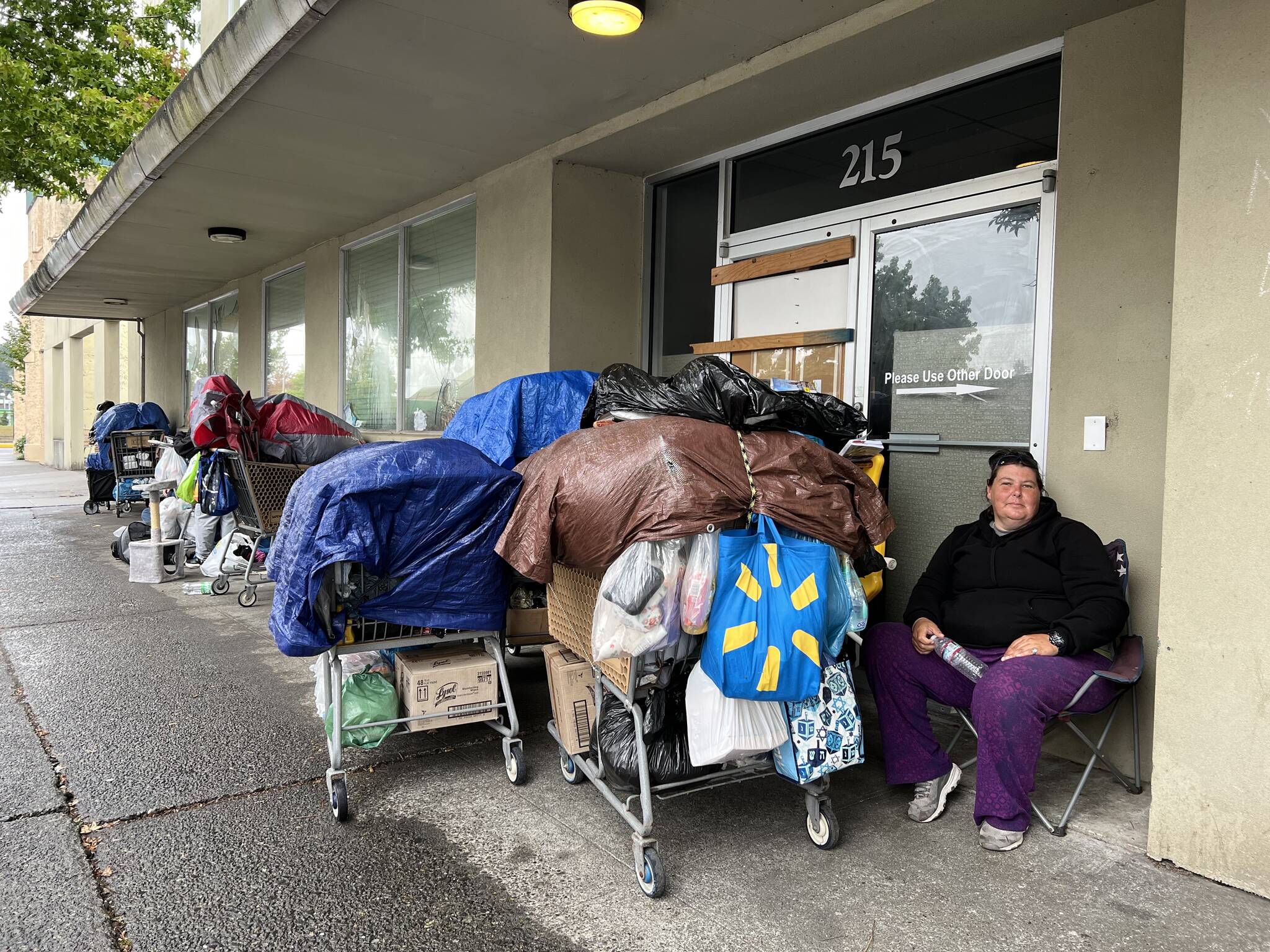The Grays Harbor County Board of Commissioners voted Tuesday to establish a state-required homeless housing task force to provide recommendations and advice on future homeless initiatives and plans.
The county’s public health and legal departments are currently in the process of drafting the task force’s bylaws, which will include more details about the membership, size, function and activities of the task force and be presented to commissioners for their approval at a future meeting.
State legislation passed in 2005 mandates all counties in Washington to create a homeless housing task force, its primary function to develop a five-year homeless housing plan, which is funded partially by local document recording fees.
Grays Harbor County most recently filled the requirement through the Health and Human Services Advisory Board, which drafted the most recent Five Year Plan to Address Unmet Housing Needs, published in 2019.
But that board was put on pause during the COVID pandemic “due to diminished public health changing requirements for county boards of health,” according to Cassie Lentz, healthy places coordinator for Grays Harbor County Public Health. In 2022 the Grays Harbor County Board of Health, which includes and makes recommendations to the board of county commissioners, was expanded by four members, filling in some of the duties of the absent task force.
Lentz informed commissioners of the vacancy at an Aug. 16 board of county commissioners workshop — which was a discussion about guidelines for upcoming cold weather shelter services — calling the homeless housing task force a “best practice” for informing conversations surrounding emergency shelters and other services.
According to the Revised Code of Washington 43.185C.160, the homeless housing task force, in addition to drafting the county’s five year homelessness plan, is tasked with establishing guidelines consistent with the statewide homeless housing strategic plan for initiatives including emergency shelters, short-term housing needs, temporary encampments, supportive housing for chronically homeless persons and long-term housing.
State law also provides counties the option to designate existing government or nonprofit bodies to fill the role of the task force, or to contract with another entity to provide the service.
It also allows counties to decline to participate in creating a homeless housing plan and task force, in which case the Washington state Department of Commerce would step in to do so.
District 2 Commissioner Kevin Pine at Tuesday’s meeting asked about the benefits of the local task force versus the option of leaving the homeless plan to the state.
“I think having local control over our homeless housing is what we want,” Mike McNickle, director of Grays Harbor County Public Health, told commissioners. “I don’t think we really want to have the state step in and start telling us what we want to do with our homeless housing.”
A local task force, McNickle said, allows the county to “come up with solutions that actually meet our needs and are not dictated by somebody else.”
Lentz said public health will solicit applications and recommendations for members of the task force once its bylaws are approved. State law provides a long list of eligible members: “representatives of the counties, cities, towns, housing authorities, civic and faith organizations, schools, community networks, human services providers, law enforcement personnel, criminal justice personnel, including prosecutors, probation officers, and jail administrators, substance abuse treatment providers, mental health care providers, emergency health care providers, businesses, real estate professionals, at large representatives of the community, and a homeless or formerly homeless individual.”
District 3 Commissioner Vickie Raines said insight from that wide range of people could prove valuable.
“I’m not a social worker and neither are either of my seat mates,” Raines said. “It will make it I think less of a conflict between the commissioners, because we selected this board, this is the recommendations that they have — are we going to follow the recommendations of our task force?”
McNickle told commissioners Tuesday that public health will target membership solicitations based on recommendations from commissioners.
District 1 Commissioner Jill Warne said she would “encourage strongly” for the director of the Union Gospel Mission, Charley Capoeman, who took over in January, to be a member of the task force.
“I think that would be a great member, a great voice,” Warne said.
Contact reporter Clayton Franke at 406-552-3917 or clayton.franke@thedailyworld.com.


